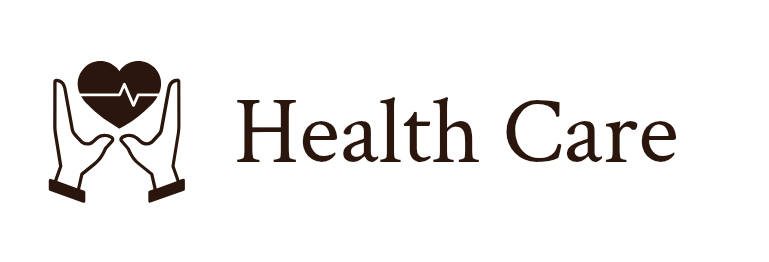Contents
- 1 The Key Heart-Friendly Minerals You Need to Add to Your Diet Today
- 2 Introduction to Heart-Friendly Minerals
- 3 What are the Key Minerals for Cardiovascular Health?
- 4 Benefits of Adding Key Minerals to Your Diet
- 5 Where You Can Find These Minerals
- 6 Recipes Incorporating Heart-Friendly Minerals
- 7 Best Practices for In taking Heart-Friendly Minerals
- 8 Conclusion
The Key Heart-Friendly Minerals You Need to Add to Your Diet Today
The Key Heart-Friendly Minerals You Need to Add to Your Diet Today:- Are you looking for ways to support your heart health? Look no further than the minerals found in your diet. These key heart-friendly minerals are essential for maintaining a healthy cardiovascular system, but many people don’t get enough of them in their daily meals. In this blog post, we’ll explore the top minerals that can help keep your heart strong and how to easily incorporate them into your diet. So let’s get started on boosting our heart health today!
Are you looking for ways to boost your heart health and improve your overall well-being? Look no further than the key heart-friendly minerals that should be on everyone’s radar. By adding these essential nutrients to your diet, you can reduce the risk of heart disease and keep your ticker in top shape. From magnesium to potassium, we’ve got all the details on the minerals you need to know about – so read on and start incorporating them into your meals today!
Introduction to Heart-Friendly Minerals
The heart is a vital organ that needs minerals to function properly. There are many minerals that are important for heart health, but some are more crucial than others. Adding these key heart-friendly minerals to your diet today can help keep your heart healthy and improve your overall health.
Calcium: Calcium is essential for proper muscle function, including the muscles of the heart. It also helps maintain healthy blood pressure levels. Good sources of calcium include dairy products, leafy green vegetables, and tofu.
Magnesium: Magnesium helps the body to use calcium efficiently and is involved in over 300 biochemical reactions in the body. It also helps to regulate blood pressure and heartbeat rhythm. Good sources of magnesium include dark chocolate, nuts, seeds, and legumes.
Potassium: Potassium is another mineral that helps regulate blood pressure and heartbeat rhythm. It also aids in muscular contraction and prevents cramping. Good sources of potassium include bananas, sweet potatoes, avocados, and tomatoes.
Iron: Iron is necessary for the production of hemoglobin, which carries oxygen in the blood. It also plays a role in energy metabolism and immune function. Good sources of iron include red meat, poultry, fish, beans, lentils, spinach, and fortified cereals.
Zinc: Zinc is involved in many aspects of cellular metabolism and plays a role in immune function and wound healing. Good sources of zinc include oysters, beef, pork chops, pumpkin
What are the Key Minerals for Cardiovascular Health?
The key minerals for cardiovascular health are magnesium, potassium, and calcium.
Magnesium is involved in over 300 biochemical reactions in the body and is essential for the proper functioning of the heart, muscles, and nervous system. Potassium is a key electrolyte that helps regulate blood pressure and heart rate. Calcium is necessary for the proper contraction of the heart muscle.
A diet that is rich in these key minerals can help to prevent cardiovascular disease and improve overall heart health.
Benefits of Adding Key Minerals to Your Diet
When it comes to heart health, there are certain key minerals that can make a big difference. Adding these minerals to your diet can help improve your cardiovascular health and reduce your risk of heart disease.
Calcium is one of the most important minerals for heart health. It helps keep your blood vessels and heart muscle healthy and functioning properly. A lack of calcium can lead to high blood pressure, which is a major risk factor for heart disease. Good sources of calcium include dairy products, leafy green vegetables, and canned fish with bones (such as sardines and salmon).
Potassium is another important mineral for heart health. It helps regulate blood pressure and keeps your heart rhythm healthy. Potassium-rich foods include bananas, potatoes, avocados, and tomatoes.
Magnesium is another mineral that’s essential for heart health. It helps relax blood vessels and prevents plaque buildup in the arteries. Good sources of magnesium include dark leafy greens, nuts, seeds, and whole grains.
Adding these key minerals to your diet can help improve your cardiovascular health and reduce your risk of developing heart disease. Be sure to talk to your doctor about the best way to get these nutrients into your diet.
Where You Can Find These Minerals
There are a few key minerals that are essential for heart health, and luckily, they can be easily found in a variety of foods. Here are some of the best sources of these heart-friendly minerals:
Magnesium: Spinach, Swiss chard, pumpkin seeds, almonds, black beans
Potassium: Sweet potatoes, white beans, avocados, bananas, acorn squash
Calcium: Collard greens, kale, sesame seeds, figs, oranges
Iron: Lentils, kidney beans, whole wheat bread, spinach, raisins
Selenium: Brazil nuts, tuna fish
Recipes Incorporating Heart-Friendly Minerals
The American Heart Association (AHA) recommends that adults consume at least 4,700 mg of potassium per day. Potassium can be found in many foods, including fruits and vegetables. Here are some recipes that incorporate heart-friendly minerals:
1. Potato and Kale Soup: This soup is a great way to get your daily dose of potassium. It is also packed with other nutrients, such as fiber and vitamins A and C.
2. Salmon with Sweet Potato: Salmon is a good source of omega-3 fatty acids, which are beneficial for the heart. This recipe also includes sweet potatoes, which are rich in potassium.
3. Quinoa Salad with Edamame: This salad is a good option for those who are looking for a hearty meal that is still low in calories. It contains quinoa, edamame, and other vegetables, all of which provide important nutrients for the heart.
Best Practices for In taking Heart-Friendly Minerals
When it comes to keeping your heart healthy, minerals are key. Here are some of the best minerals for heart health and how to get them into your diet:
Calcium: Calcium is essential for maintaining healthy blood pressure and keeping your heart muscle functioning properly. Good sources of calcium include dairy products, leafy green vegetables, and certain types of fish.
Potassium: Potassium helps to regulate blood pressure and keeps your heart rhythm steady. It can be found in fruits and vegetables such as bananas, sweet potatoes, tomatoes, and spinach.
Magnesium: Magnesium helps to prevent irregular heartbeats and maintains healthy blood pressure. It is found in dark leafy greens, nuts, seeds, and whole grains.
Iron: Iron is necessary for proper oxygen circulation in the blood. It can be found in meat, poultry, seafood, beans, and dark leafy greens.
Copper: Copper helps to keep cholesterol levels in check and prevents damage to blood vessels. It can be found in shellfish, liver, dark chocolate, and nuts.
Conclusion
Eating a healthy, balanced diet is essential for keeping your heart and cardiovascular system in optimum condition. Adding minerals such as magnesium, potassium, and calcium to your diet can help enhance your overall health, and provide you with the necessary nutrients to promote good cardiac health. Taking the time to ensure that you are getting enough of these key minerals in your daily nutrition will go far in helping to keep your heart functioning at its best.
Eating a healthy and balanced diet with the right amount of heart-friendly minerals is an important part of maintaining your overall health. While there are several minerals that can help you maintain a strong and healthy heart, we have highlighted some of the key ones today. Make sure to add these essential minerals into your diet for optimal health benefits. To get started, try adding foods such as nuts, legumes, fish, fortified grains, and dairy products into your daily meal plans. By making small changes each day, you will be on track to having a healthier and happier heart!

